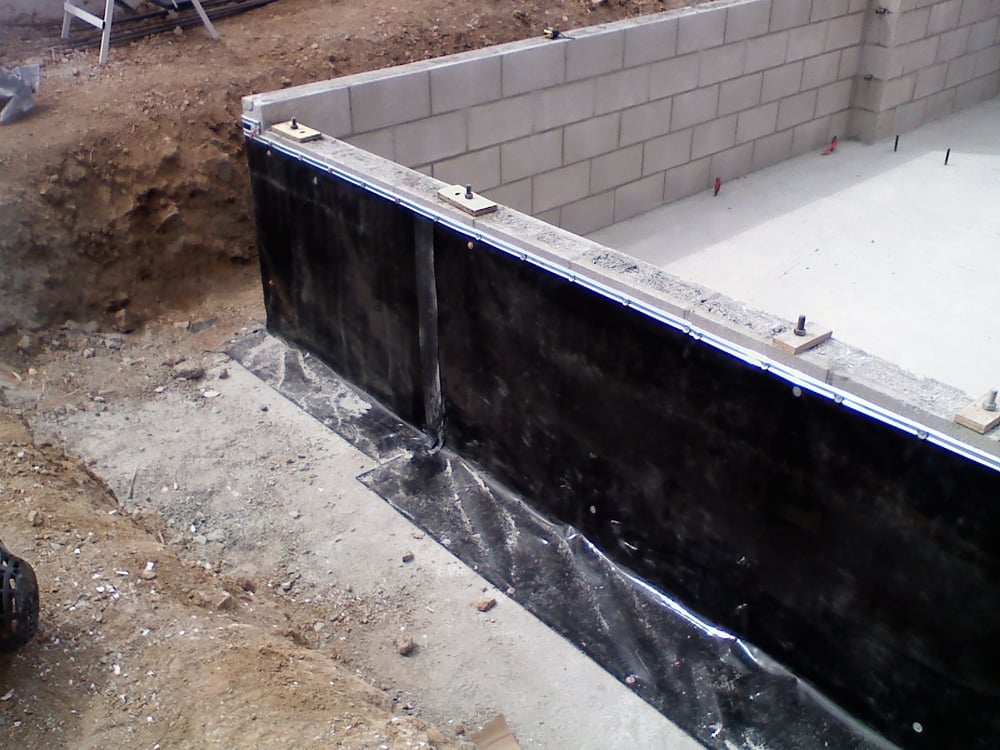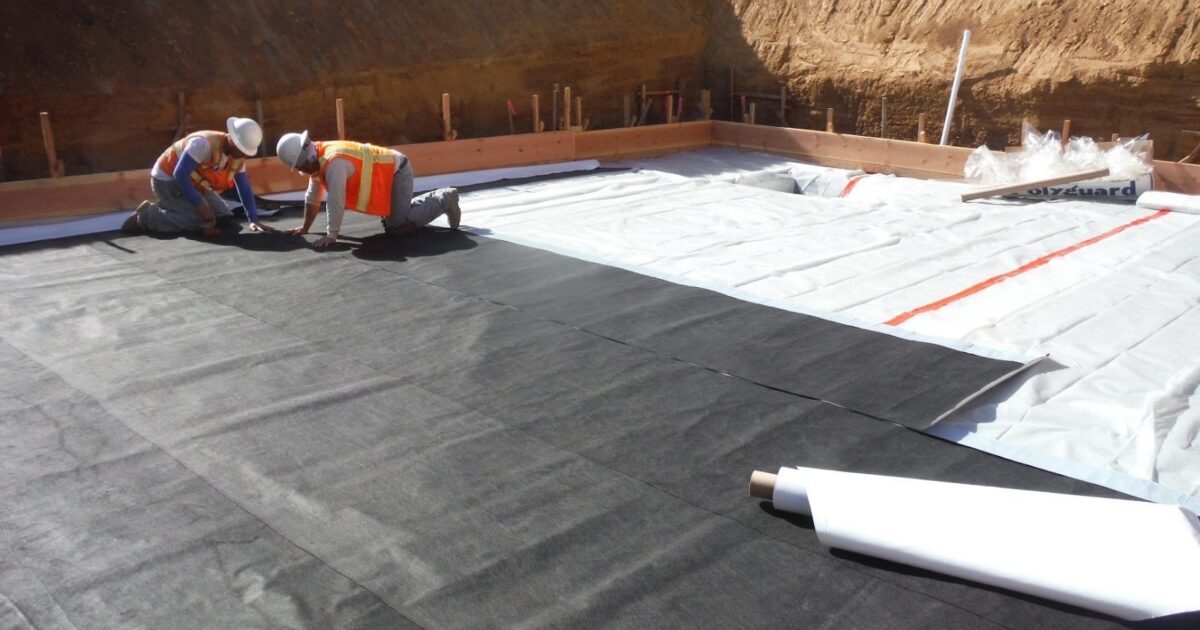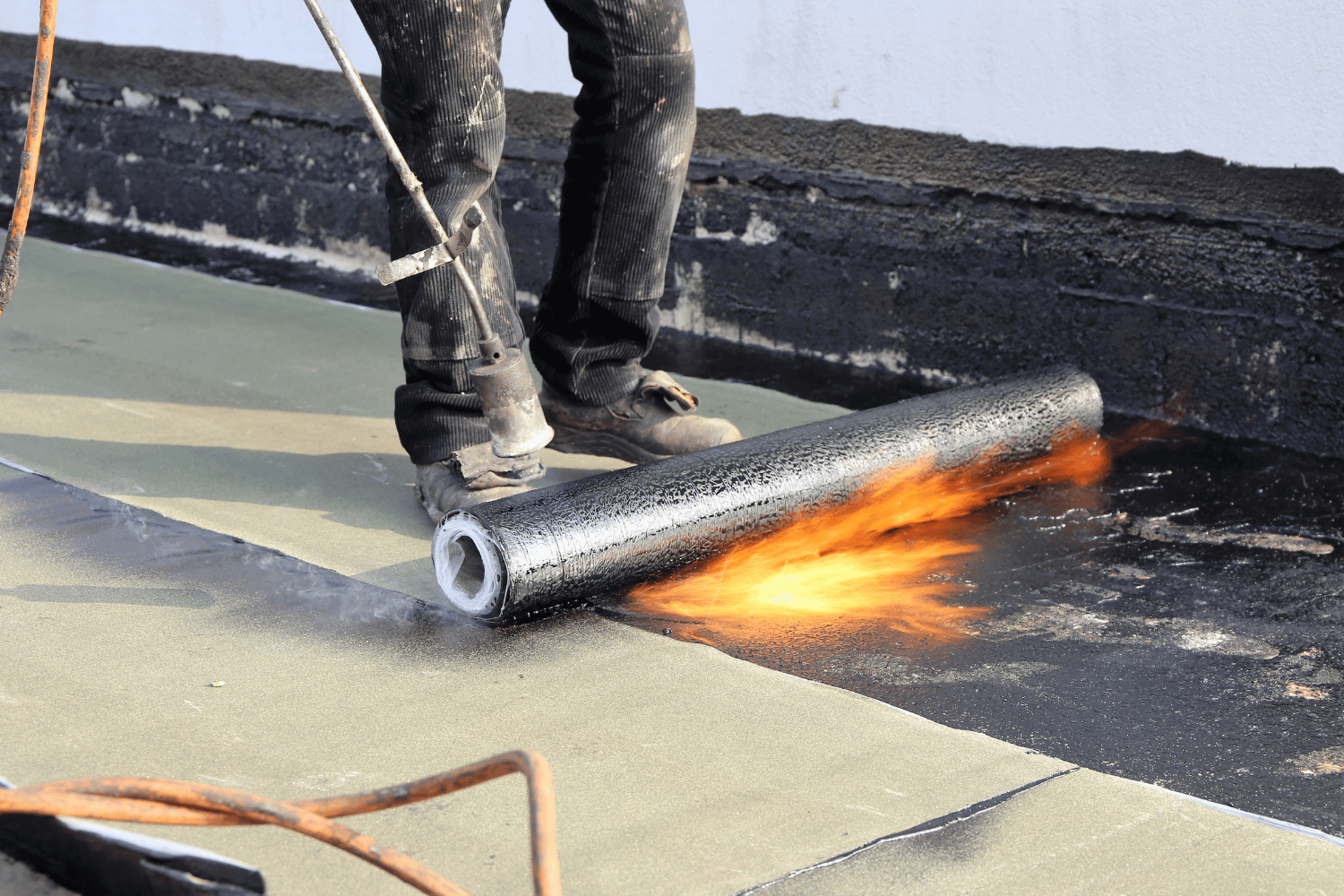
All Concerning Waterproofing: Comprehending Its Significance and Advantages for Your Home
Waterproofing is a crucial aspect of home upkeep that numerous property owners overlook. It offers to secure frameworks from the damaging effects of water infiltration, which can bring about substantial problems in time. Understanding the different methods and their value can help homeowners make educated choices. As the discussion unravels, the genuine question remains: just how can efficient waterproofing transform a home's resilience versus moisture-related hazards?
What Is Waterproofing and Just How Does It Work?
Waterproofing is an essential process developed to safeguard structures and structures from water seepage. It involves the application of various products and methods that develop an obstacle, protecting against water from permeating surface areas. Common waterproofing techniques consist of using membranes, coverings, and sealers, which can be related to roofs, structures, and walls. Each method is chosen based upon the details demands and conditions of the structure.The efficiency of waterproofing relies on appropriate installation, making sure that all locations are properly covered and secured. Materials such as bituminous membrane layers, liquid waterproofing substances, and cementitious finishings are frequently employed, each offering unique benefits. Additionally, drain systems may be incorporated to reroute water away from susceptible areas, even more improving defense. On the whole, waterproofing not only safeguards structural integrity but also enhances longevity, making it an essential factor to consider in building and restoration projects.
The Relevance of Waterproofing for House owners
Home owners encounter countless difficulties in keeping their buildings, and one of the most substantial problems is water damages. This issue can develop from different sources, including heavy rainfall, flooding, and pipes failures. When left unaddressed, water damages can bring about extreme structural problems, mold development, and costly repair services. Waterproofing stands as a crucial precautionary step that shields homes from these possible threats.
Typical Waterproofing Approaches and Strategies
When taking into consideration waterproofing methods, home owners can pick from a selection of effective options. Outside waterproofing services concentrate on avoiding water from passing through the framework, while indoor waterproofing strategies attend to wetness problems once they have taken place. Recognizing these options is essential for keeping a dry and healthy home setting.
Exterior Waterproofing Solutions
To secure a property from water intrusion, various exterior waterproofing solutions can be utilized, each customized to the details requirements of the structure. One typical approach is the application of water resistant membranes, which develop a barrier versus wetness. These membrane layers can be either liquid-applied or sheet-based, relying on the installation needs. An additional reliable strategy includes making use of drain systems, such as French drains pipes, that redirect water away from the structure. In addition, applying outside sealants can aid protect surfaces from water infiltration and deterioration. Landscaping services, including grading and proper drain, can likewise contribute especially to avoid water buildup around the foundation. Each of these techniques plays an essential duty in improving the durability and sturdiness of the building.
Inside Waterproofing Techniques
Interior waterproofing methods are important for safeguarding a home versus dampness and water damage. Typical approaches consist of the application of sealers and membrane layers, which develop an obstacle on wall surfaces and floorings to stop water infiltration. Interior drain systems, such as sump pumps and French drains pipes, effectively reroute water away from vulnerable areas. Furthermore, vapor obstacles can be installed to obstruct dampness from penetrating with walls and floors, specifically in cellars and creep spaces (Landscape drainage Omaha). Routine upkeep and assessment of these systems are very important to assure their efficiency. Attending to any type of plumbing leaks or condensation issues immediately can substantially improve the general waterproofing method. With each other, these strategies provide property owners with a comprehensive method to decreasing the threat of water-related troubles

Signs Your Home Demands Waterproofing
Home owners need to understand vital signs that their residential property might need waterproofing. Noticeable water damages, moldy smells, and frequent mold growth are critical indications that moisture is endangering the stability of the home. Resolving these concerns immediately can prevent additional damages and ensure a healthier living atmosphere.
Visible Water Damage
Visible water damage acts as a clear sign that a home might call for waterproofing actions. Home owners must be alert for indications such as water discolorations on walls read the full info here or ceilings, peeling paint, and warped floor covering. These visible signs frequently signify underlying dampness problems that, if left unaddressed, can result in much more comprehensive damages and costly repair work. Mold and mildew development can also occur, though it will certainly be talked about in the next section. Additionally, home owners must examine cellars and crawl areas for moisture or efflorescence on concrete surfaces, which suggests dampness penetration. Noticing these signs early can assist protect against further damage of the home's structural stability. Prompt waterproofing steps can guard the financial investment and maintain a healthy living setting.
Musty Odors Existing
Stuffy smells are frequently a dead giveaway that moisture is remaining in concealed locations of a home, showing the need for waterproofing services. These undesirable smells regularly emerge from damp basements, crawl areas, or behind wall surfaces, where water seepage might not be instantly noticeable - Yard drainage Omaha. Homeowners should pay close interest to these smells, as they suggest that excess moisture is trapped, potentially resulting in more damage. The existence of mildewy scents can endanger indoor air quality, impacting the health and wellness and comfort of homeowners. Ignoring this cautioning indication can cause much more extreme concerns, making punctual evaluation and action crucial. By addressing waterproofing requirements, homeowners can eliminate stuffy smells and create a much healthier living atmosphere
Frequent Mold And Mildew Growth
Constant mold and mildew growth is Learn More Here a clear sign that a home may be experiencing dampness concerns, necessitating waterproofing measures. Mold prospers in damp atmospheres, making it a significant concern for homeowners. Indicators of mold can include dark places on walls, ceilings, and around home windows, in addition to a consistent stuffy odor. If mold appears consistently despite cleaning up efforts, it suggests underlying moisture troubles. This can arise from leaks, inadequate drain, or high humidity levels. Disregarding these signs can result in architectural damage and health and wellness risks, especially for people with respiratory concerns. Consequently, resolving waterproofing immediately can help minimize mold and mildew growth, ensuring a much safer and healthier living setting. Homeowners must take into consideration specialist assessments to establish the extent of the wetness issue.
The Long-Term Perks of Investing in Waterproofing
Buying waterproofing provides house owners an extensive sense of safety and tranquility of mind, recognizing their residential property is protected against moisture-related damage. This aggressive technique substantially lowers the threat of structural issues, such as timber rot and foundation fractures, which can result in expensive fixings with time. Furthermore, waterproofing helps preserve interior air high quality by lessening mold and mildew growth, which can have negative health and wellness effects for occupants.Furthermore, waterproofing boosts the sturdiness of a home, eventually protecting its worth. A well-protected property is more eye-catching to prospective buyers, as they are much less most likely to experience hidden dampness issues. This investment also adds to energy performance; properly secured rooms stop drafts and lower cooling and heating expenses. Generally, the lasting advantages of waterproofing not just assure the architectural stability of a home but likewise foster a healthier living environment and reinforce the property's bankability.
Selecting the Right Waterproofing Professional for Your Home
Just how can a home owner guarantee they select one of the most competent waterproofing specialist for their requirements? The procedure starts with complete research and getting several quotes. Home owners ought to seek experts with a solid credibility, confirmed qualifications, and substantial experience in waterproofing. Checking online evaluations and requesting for referrals can provide beneficial understanding into a specialist's dependability and top quality of work.Moreover, it is vital to ask about the certain waterproofing methods each specialist employs, as well as the materials utilized. Property owners must validate that the selected specialist is accredited and guaranteed, which protects against possible liabilities. A reliable professional will additionally provide a detailed contract outlining the extent of work, timeline, and service warranty information. By focusing on these criteria, house owners can make enlightened choices, inevitably leading to boosted security versus water damages and an effective waterproofing option tailored to their home's requirements.
Often Asked Inquiries
Can Waterproofing Be Done in Winter Season or Cold Climate?
Waterproofing can be challenging during winter or winter because of reduced temperature levels impacting materials' adhesion and curing procedures. However, specialized products designed for chilly conditions can enable successful waterproofing applications even in cold weather.
Exactly how Typically Should I Waterproof My Home?
The regularity of waterproofing a home normally relies on numerous factors, including environment and worldly top quality. Specialists suggest reviewing problems every year and reapplying every 5 to 10 years, or quicker if significant wear is obvious.
Does Waterproofing Affect Home Resale Value?
Waterproofing can significantly affect a home's resale worth (Water Solutions). Possible customers often view waterproofing as a safeguard versus water damages and mold, boosting the residential property's appeal and bankability, potentially causing click here for info greater offers and quicker sales
Is Do It Yourself Waterproofing Effective for All Residences?
The effectiveness of DIY waterproofing varies by home. Factors such as residential or commercial property age, ecological conditions, and existing damages impact outcomes. Property owners must examine their certain situations prior to trying DIY remedies to assure lasting defense.

Are There Eco-Friendly Waterproofing Options Available?
Green waterproofing alternatives do exist, including all-natural sealers like beeswax and plant-based products. These options decrease environmental influence while effectively securing structures from water damages, appealing to homeowners looking for sustainable alternatives for their waterproofing requires.